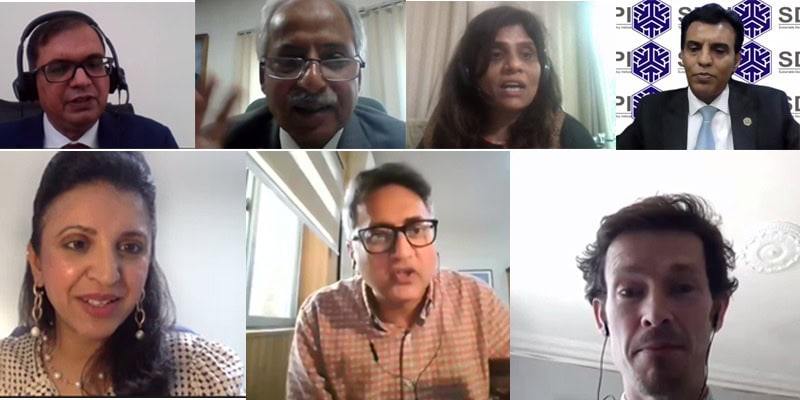A panel of distinguished experts on water-stressed the need for collaborative national measures to value water across multiple sectors keeping in view the dwindling natural resource.
The experts gathered for a webinar under the banner of International Water Management Institute (IWMI) Pakistan on World Water Day, here on Monday.
Moderating the session, Dr Mohsin Hafeez highlighted the role of water for driving diverse sectors like livestock, dairy, energy and industry.
Dr. Hafeez, who can be termed ‘water advocate’, emphasized how technology can be tapped for conservation of water in Pakistan, the country that is now 5th most vulnerable to climate change.
In his keynote speech, Dr Muhammad Ashraf explained that the value of water hinged on the sector and its purpose where it was being utilized.
The expert outlined that only after realizing the actual value of water, measures could be taken for innovation and investment in the sector.
Dr. Ashraf also brought in the concept of how water was directly linked to Sustainable Development Goals.
The Chairman Pakistan Council of Research in Water Resources (PCRWR) also elaborated the concept of human security associated with water governance and management.
‘We need to take water as a commodity and a shared resource,’ said Dr. Ashraf while suggesting measures like e-flow and watershed for better conservation of water besides setting up an authority in this regard.
Painting a bleak picture about the productivity of water, Dr. Ashraf said that less than 1 percent of wastewater was treated in Pakistan.
The official also highlighted the key areas which were being ignored like national database for water use pattern.
Dr Ashraf also proposed solution to the longstanding problem including volumetric water pricing, restricting high delta corps and adaptation of climate resilient seeds.
‘For instance, as much as 40 percent of water is lost in leakage in Islamabad,’ said Dr. Ashraf as he detailed the problems in water management framework of the country.
He continued that Pakistan needed to strike a balance between water extraction and recharge.
One of the panelists, Dr Robina Wahaj lamented the lack of credible information and data regarding water usage despite the fact that reporting of water levels in canals was in place.
Wahaj, the Senior Land and Water Officer at FAO, stressed that water allocation was a politically sensitive issue in the country.
‘National Water Policy in 2018 did not account for actual water usage by different sectors,’ said the expert and added that non-agriculture sectors were not under the limelight in water efficiency discourse.










